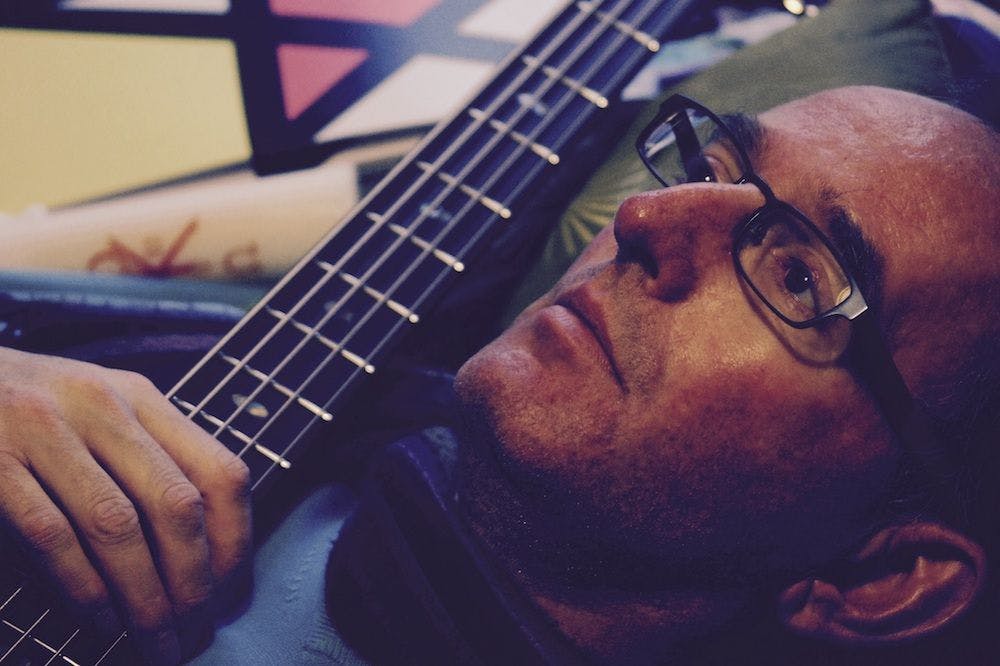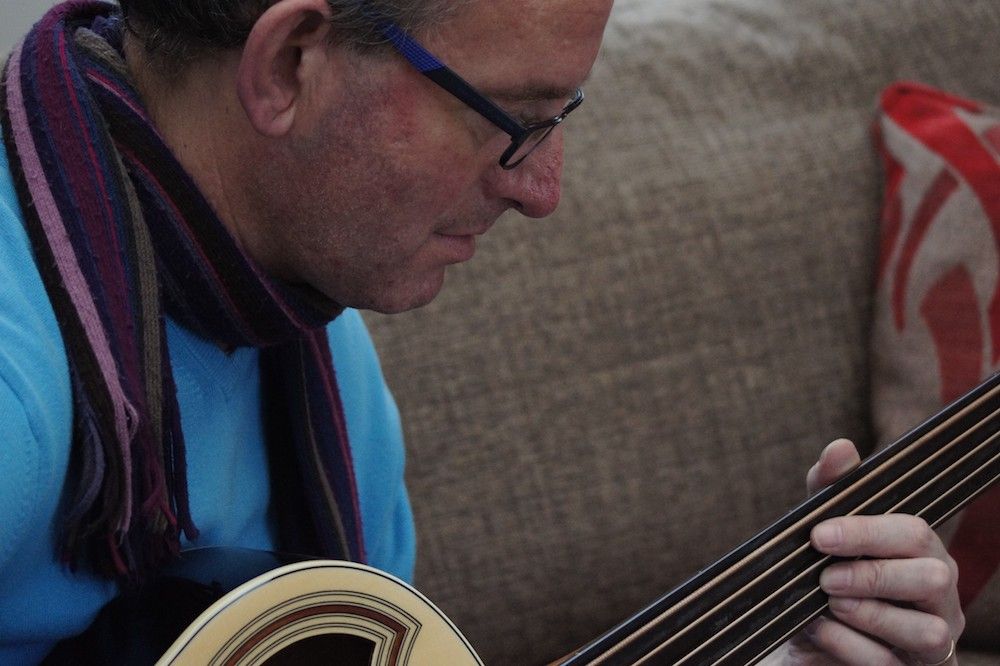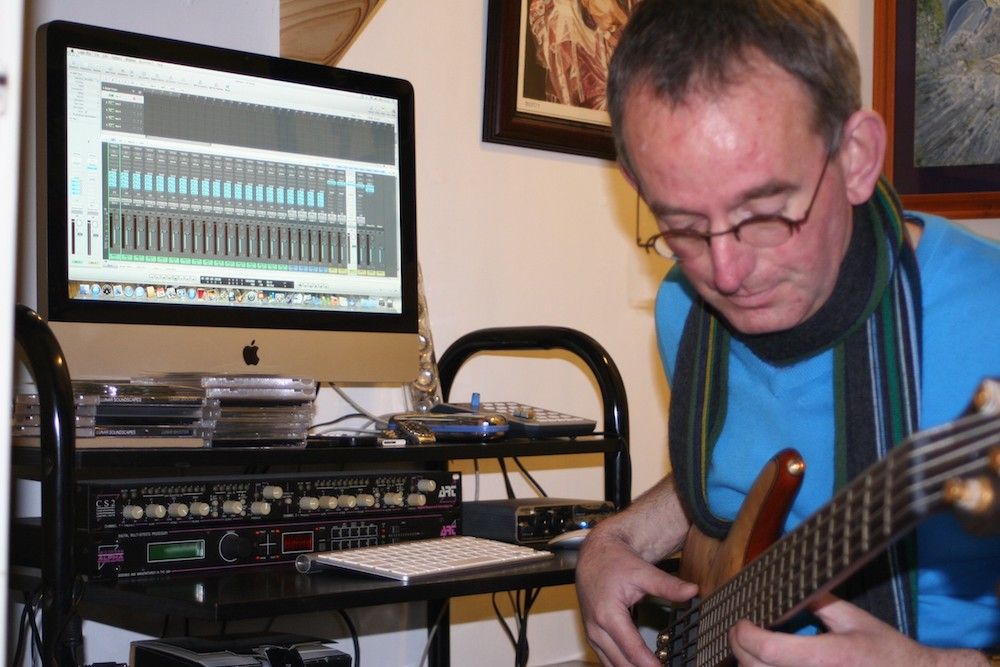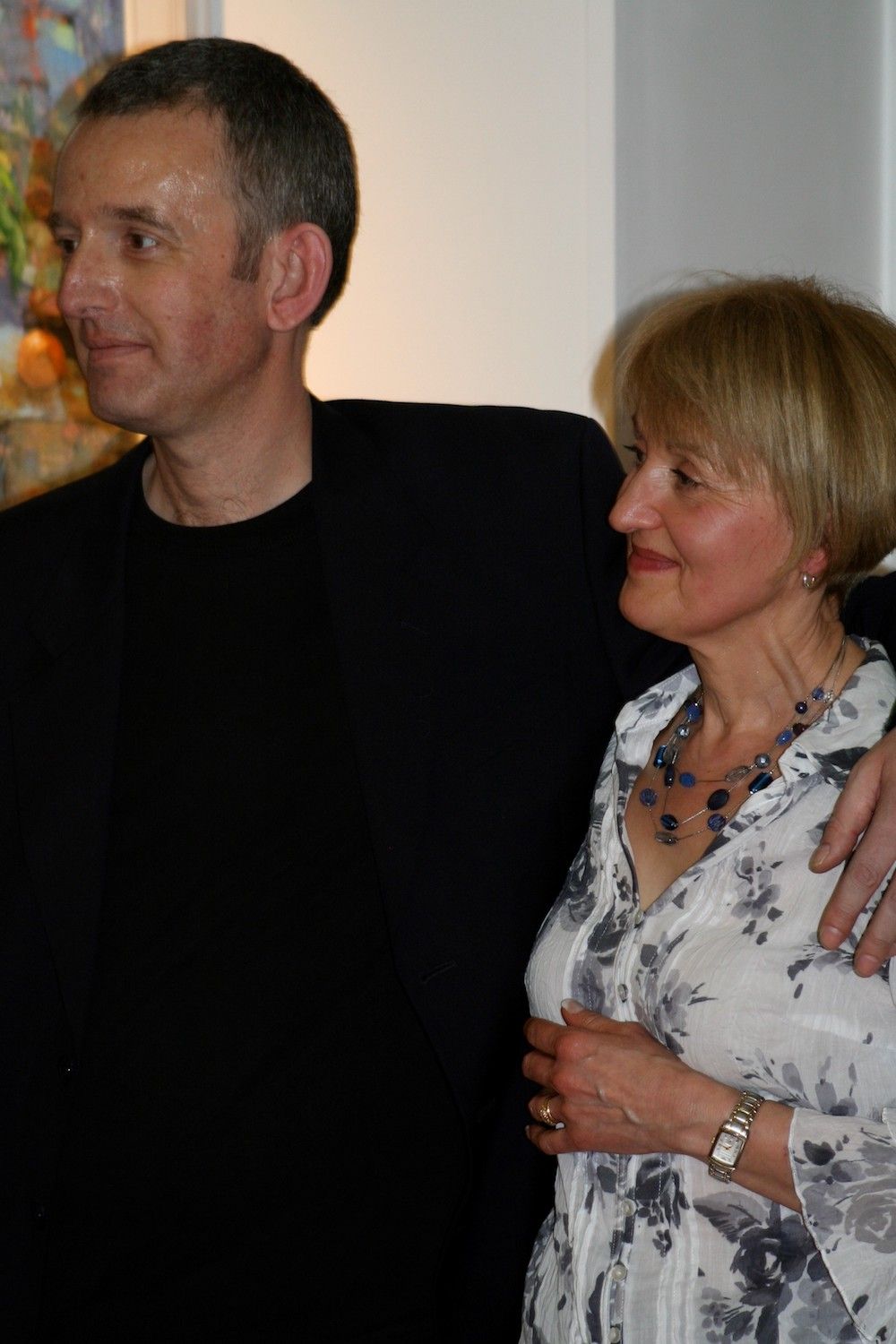Waiting to wake from the nightmare: Robert's story
updated on Mar 7, 2023

After living with schizophrenia from a young age, Robert Bayley speaks with candour and disarming honesty about the challenges of his condition, his experiences of psychosis, and why music has truly helped him
For most of my adult life, I have been diagnosed with paranoid schizophrenia. I’ve experienced extreme pain and relentless symptoms.
I can recall the start of this path when I was a young child. I was left cowering in the corner of a deserted school playground, overwhelmed by voices attacking me for my use of profanities in a classroom exchange. I had been encouraged by a fellow pupil to use expletives for the first time, and subsequently felt persecuted by God for my failure to resist. The start of my mental decline was provoked by this.
The psychosis took hold of me, alienating me more and more. I didn’t feel able to talk about what was happening to me. I couldn’t relate to the world around me, as my reality became increasingly fractured and confused.

Robert Bayley
By the time I reached my teenage years, the tension had multiplied, making my desire to end my life stronger and stronger. Inevitably, I was hospitalised and sectioned on a secure ward when I was just 16.
While on this ward in 1984, I was given powerful anti-psychotic medicines which left me drained, and overwhelmed by side effects that stripped me of my sense of identity. I would twitch and shake violently, at times incontinent, as my tongue would swell, saliva dripping to the floor.
The worst part was being confined in seclusion. I would curl up on the cell floor, unable to escape the screaming and hollering of fellow patients haunted by their pasts.
Eventually, six weeks after being sectioned, my parents arranged funding for me to be treated in a private hospital – a place where I found solace and empathy. A truly special psychiatrist took over my case, and it was his intervention, and his team, that saved me from certain self-destruction. They carried me during some of the most despairing periods of my life.
Schizophrenia is an extreme of the human condition, shrouded in mystery. It is marked by profound misery and isolation, where many of those who are diagnosed are left to cope on their own. Withdrawal from society is commonplace, with those affected often existing on the edge of life itself. This detachment often leads to self-harm and suicide.
Research has revealed that there is more activity in the parts of the brain that assimilate language and vision in a person with schizophrenia than in an individual who is mentally well.
I couldn’t relate to the world around me, as my reality became increasingly fractured and confused
For me, daily life is almost constant torment. The voices and visions intrude and disturb me greatly. Terrors wake me during the night, leaving me soaked in a cold sweat, as the visions multiply.
The voices I hear are destructive, ordering me to harm myself by pouring boiling water into my eyes, or mutilating myself, and ridiculing me, breaking down my self-confidence. Some of the voices come from various forms of technology, such as televisions or computer screens. They deceive me and force me into a world of crippling paranoia. Transient voices haunt and attack me as I attempt to shower, leaving me shattered and distressed.

The visions are extremely vivid. Paving stones transform into demonic faces. Familiar people become grotesquely deformed, their skin peeling away to reveal decomposing muscles and organs. Inanimate objects take on a life of their own as steel bars are suspended from the ceiling, trapping me in a cage.
However, despite this, I strive for some kind of balance, brought about by periods of wild creativity.
I have been treated by a succession of wonderful consultants, doctors, nurses, therapists, and social workers. Without their support, my mental decline would have been absolute. Their time, concern, and patience has proved crucial. The advances of anti psychotic medication have also improved my quality of life.
The love of my dear wife Gill, who I married in 1992, a wonderful extended family, and loyal friends, keeps me as positive as I can be.
I have been transformed from a vulnerable 16-year-old, sectioned under the Mental Health Act, to an individual, now 51, who has created works of literature and music, and studied the visual arts.
When experiencing a creative “high”, I enjoy composing music that replicates the sounds I hear in my head. I hear depth to sound, and different layers of percussion, chord arrangements and bass rhythms. I try to capture these melodies, harmonies and rhythms in my recording studio in Northampton.
I believe music helps me manage my schizophrenia, and it brings me joy and purpose. My studio facility was financed by the members of Pink Floyd in 1995, and their belief in my capabilities has propelled me forwards.
My patches of extreme creativity are, quite literally, a lifeline to me. They provide me with a release from all that confines me. However, when these creative moments disappear, invariably the fallow periods follow. During these times I retreat from the world, as the negative symptoms of the beast that is schizophrenia overwhelm me.

Robert and his wife Gill
My mind and body are exhausted, and rest, or at times sedation, is required. The length of these periods can vary, from days, to weeks, and sometimes months. I feel punished and condemned for my positive actions. There is always a darker side to challenge the power of pure creation.
Yet, despite this, I’ve managed to create a rich amount of work that I’m incredibly proud of.
For more than 20 years I have campaigned for the mental health charity SANE, releasing three albums, a novel chronicling the progression of schizophrenia, and various articles on psychosis.
My latest creation is a new album of my instrumental compositions, entitled Belief, with all royalties going to help the pivotal work that SANE does to inform, support and research into all aspects of mental illness. Its contribution to removing stigma, and educating society, saves lives. This collection of compositions aims to show that schizophrenia need not constrain creativity.
To anyone else experiencing schizophrenia, I say: aspire to great things. Aim high and let your creativity provide a cathartic release to all that torments you. Keep your faith strong and confront with vigour all that challenges.
Schizophrenia is a terrible illness, one that ravages the mind and soul.
Within just one minute, my perception of what surrounds me can transform from being carefree to paranoiac bombardment. There is no predictability to my life.
So, I live on, holding on to love and salvation, building resolve and commitment for a better life. Perhaps one day, I will wake from the nightmares, and total balance will be attainable.
To find out more about Robert and his music search Lunar Shooter on iTunes and Google Play. Learn more about SANE at sane.org.uk
Robert’s story gives us an insight into the profound difficulties that those with schizophrenia face on a daily basis. The condition varies in symptoms and severity, but Robert’s ability to hold both the truth of his illness, alongside the creative and resourceful aspects of himself, is a message of hope for others with the condition. He lives in the moment, being with whatever his current reality is, and drawing on support when he needs it – something for all of us to consider with our mental health.
Hero photography | Chloe Bernard

Join 100,000+ subscribers
Stay in the loop with everything Happiful
